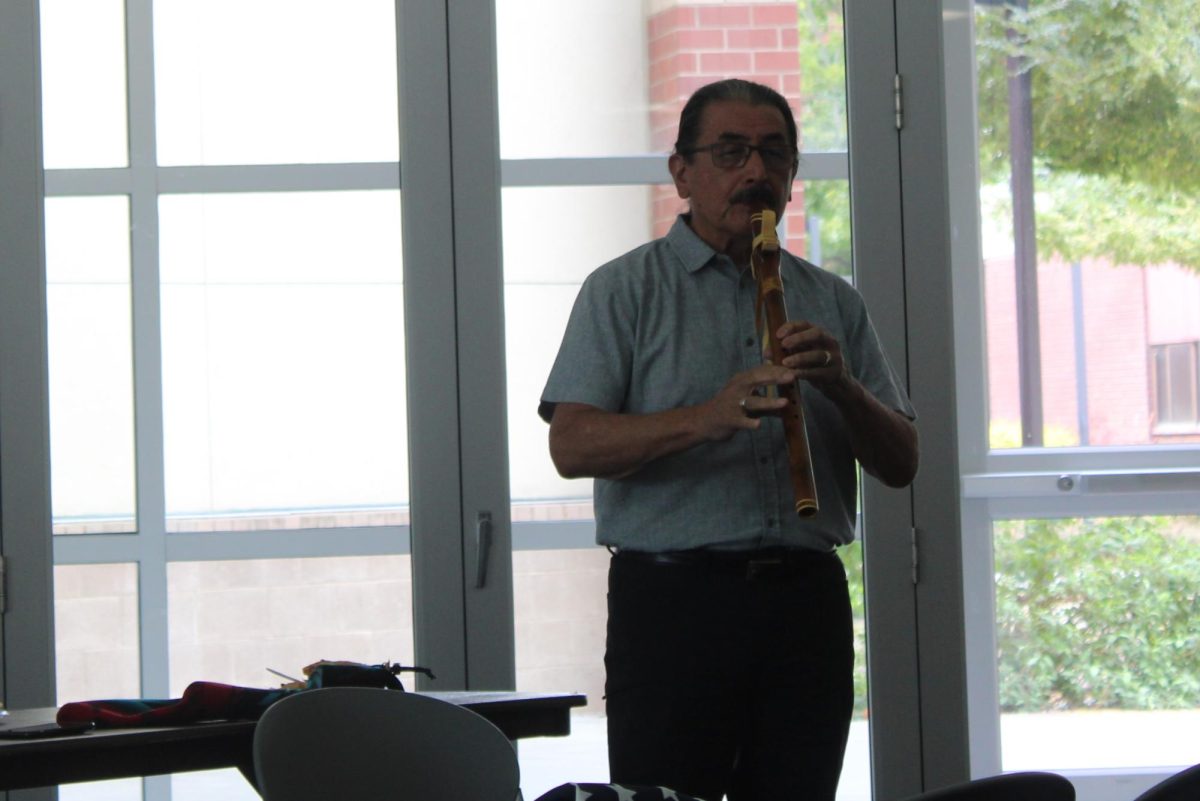Cosumnes River College’s Native American Higher Education Resources center celebrated Indigenous People’s Day with a panel of elders speaking on what being Indigenous means to them.
NAHER joined with the Asian Pacific Islander Student Success Center and the Black Empowerment Center, to host the event to honor the change from Columbus Day to Indigenous People’s Day.
“As Indigenous peoples, it’s to recognize the histories of Indigenous communities and what they contribute to America,” said Celeste Osife, NAHER’s student support assistant.
Shaina Philpot, NAHER director and event host, said she hoped students and staff felt more connected after the event.
“I hope that they felt in community with us and felt they could take even one little nugget of wisdom with them,” Philpot said. “If there was even one thing they could walk away with, that would be amazing.”
Leny Mendoza Strobel, the Filipina elder brought in by APIDA Hawks, said she connects to her indigeneity with food.
“Our indigeneity is about our relationship to the land and places where we dwell in the present. It is also about the land and places and cultures of our ancestors that we carry inside of us,” Strobel said. “My cultural practice is cooking, and I realized that my Indigenous awareness has always been carried over with the foods that my mother taught me how to cook.”
Strobel said she follows three core values to reconnect with her culture and the Earth, including giving back to her ancestors and community to nurture both herself and the land.
Denise Marshall-Mills, Umoja elder and founder, said that being Indigenous is to be yourself.
“It allows us to be who we be. The use of the word ‘be’ talks about not just our presence, but our spirituality—our being-ness as spiritual beings having human experiences,” Marshall-Mills said.
Al Striplen, CRC’s Native elder-in-residence, said he has mixed feelings about indigeneity.
“It has a complex meaning to me. It’s just another word attempting to defy what I am and my community,” Striplen said. “It made me realize that there are a lot of differences in our communities, but we are all together now. We have to find our own way and our own words. Indigenous is one of those words where we learn to define in our own ways.”
Throughout the event, the panelists told stories about their families and cultures, realizing that deep down, we are all the same.
“We are all indigenous from someplace on the planet, but we are all from one planet,” Striplen said.

